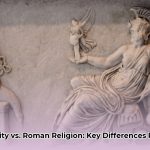Untuk gambaran yang lebih besar dan konteks penuh, pastikan Anda membaca panduan utama kami tentang Bill Gates Biography: New Memoir Reveals Childhood and Tech Beginnings.
Bill Gates’ influence stretches far beyond Microsoft, but understanding exactly which companies he owns, and to what extent, can be a bit tricky to unravel. While he’s famously associated with Microsoft, his investments and holdings are much more diversified these days, often channeled through investment vehicles.
At a glance:
- Unpack Bill Gates’ ownership stake in Microsoft.
- Explore the role of Cascade Investment in his portfolio.
- Identify key companies that Cascade Investment holds significant stakes in.
- Understand Bill Gates’ philanthropic investments through the Bill & Melinda Gates Foundation.
- Clarify the difference between direct ownership, investments, and philanthropic efforts.
Microsoft: A Still Significant Stake
While Bill Gates is no longer actively involved in Microsoft’s day-to-day operations, his influence remains substantial. He co-founded the company with Paul Allen in 1975, as detailed in his new memoir. Read the full Gates biography to delve deeper into his early tech origins and entrepreneurial drive. Although he held a majority stake in the early years, Gates has gradually reduced his shareholding over time, primarily to fund his philanthropic endeavors.
As of recent reports, Gates’ direct ownership of Microsoft stock is significantly smaller than it once was. However, the impact of his vision and leadership is undoubtedly still felt within the company, and his remaining holdings represent a considerable piece of his overall wealth. The exact percentage fluctuates, but it’s important to remember the distinction between direct ownership and influence stemming from his legacy.
Cascade Investment: The Key to Understanding His Holdings
To truly understand what companies Bill Gates “owns,” you need to understand Cascade Investment LLC. This is the private investment firm he uses to manage his personal fortune. Cascade Investment is the vehicle through which he holds stakes in a wide variety of companies across diverse sectors.
Think of Cascade Investment as a holding company, not unlike Warren Buffett’s Berkshire Hathaway. It doesn’t manufacture products or offer services directly to consumers. Instead, it owns significant portions of other companies, earning returns from their performance.
Notable Companies Within the Cascade Investment Portfolio
Here are some key companies in which Cascade Investment holds significant stakes:
- Berkshire Hathaway: Yes, Bill Gates invests in Warren Buffett’s company! This longstanding relationship reflects a shared investment philosophy focused on long-term value.
- Republic Services: Cascade holds a large stake in this waste management company. This highlights Gates’ commitment to investments in essential services.
- Deere & Company: Known for its agricultural machinery, Deere & Company represents Gates’ interests in the agriculture sector. This is particularly relevant given his foundation’s work in improving agricultural practices in developing countries.
- Ecolab: Ecolab provides water, hygiene, and energy technologies and services. This aligns with Gates’ focus on sustainable solutions and global health initiatives.
It’s crucial to note that Cascade Investment’s portfolio is dynamic and can change over time as the firm buys, sells, and adjusts its holdings based on market conditions and investment strategies.
Beyond Profit: The Bill & Melinda Gates Foundation
While Cascade Investment focuses on generating financial returns, the Bill & Melinda Gates Foundation is dedicated to philanthropic endeavors. Although the foundation doesn’t “own” companies in the traditional sense, it invests heavily in initiatives that address global health, poverty, and education.
These investments often take the form of grants to organizations working on the ground, rather than direct ownership stakes in for-profit companies. However, the foundation also makes program-related investments, which are investments in companies or funds that advance its philanthropic goals. An example would be investing in a company developing a new vaccine for a disease prevalent in developing countries. While the primary goal isn’t financial return, the foundation expects the investment to contribute to solving a specific problem.
Untangling Ownership, Investment, and Philanthropy
It’s important to distinguish between:
- Direct Ownership: Shares held directly by Bill Gates in a company like Microsoft (now a smaller percentage).
- Investment: Stakes held by Cascade Investment LLC in various companies, aiming for financial returns.
- Philanthropy: Grants and program-related investments made by the Bill & Melinda Gates Foundation, aiming to achieve specific social or environmental outcomes.
Confusing these categories can lead to a misunderstanding of Bill Gates’ role and influence in different sectors. His impact is multifaceted, spanning technology, finance, and philanthropy.
Practical Playbook: Due Diligence on Investment Portfolios
Want to understand who really owns a company? Here’s a method you can use to dig deeper:
- Start with Public Filings: Publicly traded companies are required to disclose their major shareholders to the Securities and Exchange Commission (SEC). Search the SEC’s EDGAR database for the company’s filings (e.g., 13F filings).
- Look for Holding Companies: Pay attention to institutional investors and holding companies listed as major shareholders. These entities often represent the investments of individuals or groups.
- Research Holding Companies: Once you identify a holding company, research its ownership structure. This may involve looking at its website, news articles, or regulatory filings in its jurisdiction.
- Consider Private Investments: If a company is privately held, information about its ownership may be more difficult to obtain. Look for news articles, press releases, or industry reports that mention investors or owners.
- Use Business Intelligence Tools: Services like Bloomberg Terminal or Crunchbase can provide detailed information about company ownership, including institutional investors and key executives.
Example: Let’s say you’re researching the ownership of a renewable energy company. You start by searching the SEC’s EDGAR database for its 13F filings. You discover that a company called “GreenTech Investments LLC” holds a significant stake. You then research GreenTech Investments LLC and find that it’s a private equity firm focused on renewable energy investments. Further research reveals that the firm is backed by a group of high-net-worth individuals and institutional investors.
Quick Answers: Bill Gates’ Company Ownership FAQs
- Does Bill Gates still own Microsoft? He owns a fraction of what he once did, and that percentage continues to change, as he has been divesting shares to fund his philanthropic efforts. His influence remains significant due to his legacy.
- Is Cascade Investment publicly traded? No, Cascade Investment is a private investment firm. Its holdings are disclosed in filings made by the companies it invests in, but the firm itself is not publicly traded.
- Does the Bill & Melinda Gates Foundation own companies? Not in the traditional sense. It makes program-related investments in companies that align with its philanthropic goals, but these are not driven by a profit motive.
- How can I find out more about Cascade Investment’s holdings? By reviewing the SEC filings of the companies in which it invests. These filings will list Cascade Investment as a major shareholder.
- Is Bill Gates directly involved in the day-to-day operations of the companies Cascade invests in? Generally, no. Cascade Investment typically takes a passive investment approach, focusing on long-term value creation.
- Does Bill Gates own any tech companies besides Microsoft? Through Cascade Investment, he has indirect investments in a variety of tech-related companies, although they are not core holdings in the same way Microsoft once was.
Actionable Close: Navigate Complex Ownership Structures
Understanding the companies Bill Gates owns requires navigating layers of investment vehicles and philanthropic organizations. By focusing on Cascade Investment and the Bill & Melinda Gates Foundation, you can gain a clearer picture of his diverse holdings and the scope of his influence. Remember, direct ownership is only one piece of the puzzle; understanding the broader investment landscape provides a more complete understanding.










